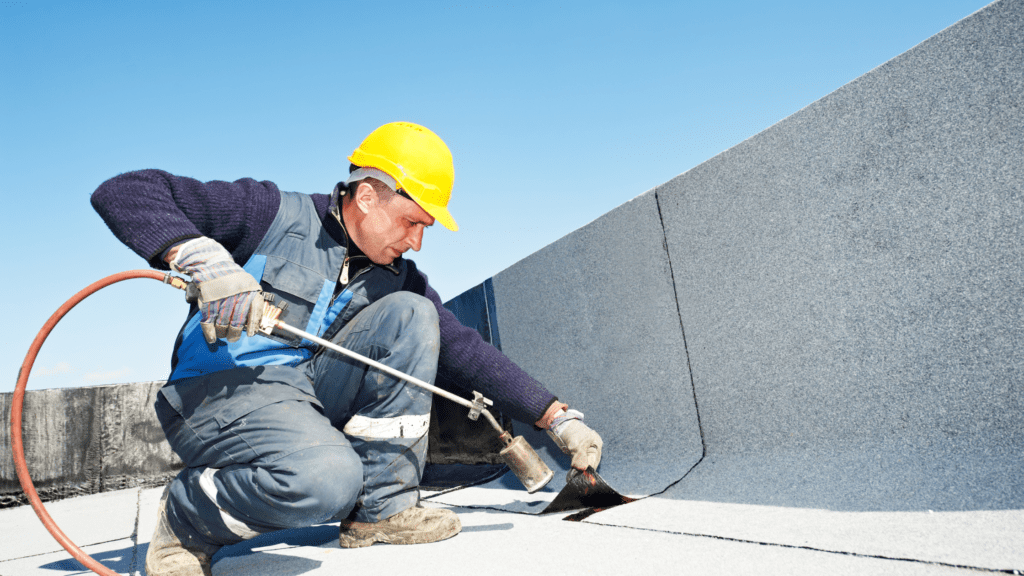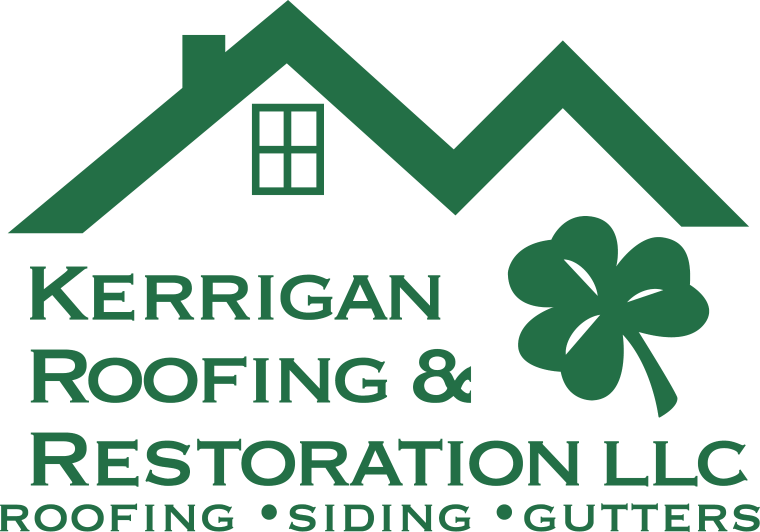
Are you a business owner or property manager in the Columbus or Dayton, Ohio area looking to invest in a new commercial roofing system? Choosing the right commercial roofing type is crucial for the long-term protection and aesthetics of your property. With various options available in the market, it can be overwhelming to decide which roofing material is best suited for your commercial building. In this comprehensive guide, Kerrigan Roofing brings you the top 5 commercial roofing types along with their pros and cons, helping you make an informed decision for your roofing needs.
Commercial Roofing Type #1: Flat Roofing
Flat roofing is a popular choice for commercial buildings due to its cost-effectiveness and ease of installation. Some common materials used for flat roofing include built-up roofing (BUR), modified bitumen, EPDM rubber, and TPO.
Pros:
>> Cost-effective compared to other roofing types.
>> Easy to install and maintain.
>> Provides additional usable space for rooftop equipment or recreational areas.
>> Energy-efficient with the option to install reflective coatings.
Cons:
>> Prone to water pooling, which can lead to leaks and structural damage.
>> Requires regular maintenance to prevent debris buildup.
>> Susceptible to damage from foot traffic and extreme weather conditions.
Commercial Roofing Type #2: Metal Roofing
Metal roofing is known for its durability, longevity, and aesthetic appeal, making it a popular choice for commercial properties. Common metal roofing materials include steel, aluminum, and copper.
Pros:
>> Long lifespan of 40-70 years, depending on the material.
>> Excellent durability against fire, wind, and pests.
>> Energy-efficient with the option for cool roof coatings.
>> Low maintenance requirements.
Cons:
>> Initial installation cost is higher than other roofing types.
>> Prone to denting from hail or heavy impacts.
>> Expansion and contraction with temperature changes may cause noise issues.
Commercial Roofing Type#3: Asphalt Shingle Roofing
Asphalt shingle roofing is a versatile and budget-friendly option for commercial properties, offering a wide range of colors and styles to suit different architectural designs.
Pros:
>> Affordable pricing compared to other roofing materials.
>> Quick and easy installation process.
>> Variety of colors and styles available.
>> Good fire resistance with Class A ratings.
Cons:
>> Lifespan typically ranges from 15-30 years, shorter than metal or tile roofing.
>> Susceptible to wind damage in severe weather conditions.
>> Not as environmentally friendly as other roofing materials.
Commercial Roofing Type #4: Single-Ply Membrane Roofing
Single-ply membrane roofing systems, such as EPDM, TPO, and PVC, are popular choices for commercial buildings due to their flexibility, ease of installation, and energy efficiency.
Pros:
>> Lightweight and flexible, suitable for various roof shapes.
>> Energy-efficient with the option for cool roof membranes.
>> Resistant to UV radiation and chemical exposure.
>> Low maintenance requirements.
Cons:
>> Vulnerable to punctures from sharp objects.
>> Seams may require periodic maintenance to prevent leaks.
>> Lifespan typically ranges from 15-30 years, similar to asphalt shingle roofing.
Commercial Roofing Type #5: Green Roofing
Green roofing, also known as living roofs, involves the installation of vegetation and plants on the roof surface, providing numerous environmental and energy-saving benefits.
Pros:
>> Improves energy efficiency by reducing heating and cooling costs.
>> Enhances air quality by filtering pollutants and capturing carbon dioxide.
>> Increases roof lifespan by protecting the roofing material from UV radiation and extreme temperatures.
>> Adds aesthetic value and promotes biodiversity in urban areas.
Cons:
>> Higher upfront costs for installation and maintenance.
>> Requires specialized expertise for design and installation.
>> Additional structural support may be needed to accommodate the added weight of the vegetation.
In conclusion, choosing the right commercial roofing type for your property is a decision that should be based on factors such as budget, durability, maintenance requirements, and energy efficiency. Each roofing material has its own set of advantages and disadvantages, so it’s essential to assess your specific needs before making a final decision.
At Kerrigan Roofing, we understand the importance of selecting the right roofing system for your commercial property in Columbus or Dayton, Ohio. Our team of experienced professionals can help you navigate through the options and choose the best roofing solution that meets your requirements.
Whether you opt for the cost-effectiveness of flat roofing, the durability of metal roofing, the versatility of asphalt shingle roofing, the flexibility of single-ply membrane roofing, or the environmental benefits of green roofing, Kerrigan Roofing is here to provide expert installation, maintenance, and repair services to ensure the longevity and performance of your commercial roof.
If you’re considering a new commercial roofing project or need assistance with roof repairs or maintenance, contact Kerrigan Roofing today. Our team is dedicated to delivering high-quality roofing solutions tailored to your specific needs and budget.
Investing in a reliable and durable commercial roofing system is a crucial aspect of protecting your property and ensuring the safety and comfort of its occupants. With the right roofing material and professional installation, you can enjoy peace of mind knowing that your commercial building is shielded from the elements and will stand the test of time.
For all your commercial roofing needs in Columbus and Dayton, Ohio, trust Kerrigan Roofing to deliver exceptional service and superior results. Contact us today to schedule a consultation and take the first step towards a secure and reliable roofing solution for your commercial property.
SCHEDULE APPOINTMENT
"(Required)" indicates required fields
